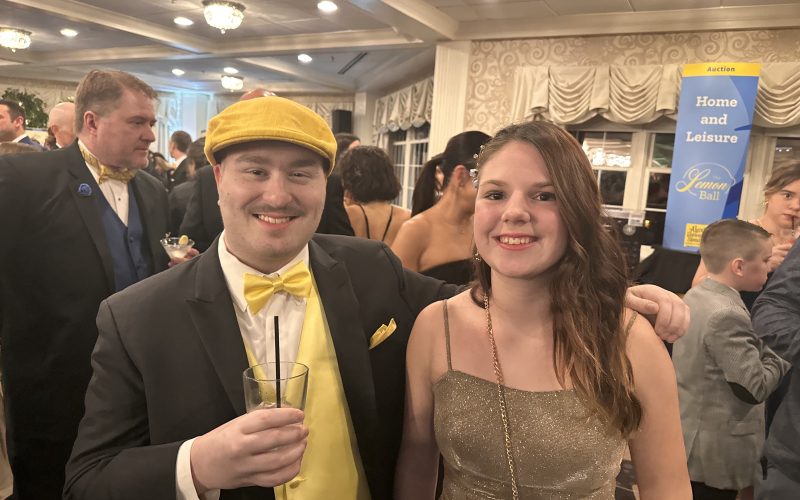By: Trish Adkins
My daughter Lily was diagnosed with a brain tumor called ependymoma 17 years ago.
She is only 18 years old.
Lily’s entire life, at least as much as she can remember, has been in the shadow of cancer. When she was 10 years old, we were talking about childhood cancer. I was trying to make her feel better and less scared. She looked at me and said:
“It’s forever, mommy.”
Lily is cancer-free today, but her life is hardly free of cancer.
There are over 500,000 childhood cancer survivors in the United States. And while 84% of children diagnosed will survive at least 5 years or more, those children are left with side effects from treatment. Some side effects are evident in the acute period after treatment: motor skill deficients and speech delays. Others appear in the late term, like cardiac dysfunction, fertility issues and secondary cancers.
Lily suffers with several long-term side effects: ataxia, which affects her motor skills and balance; processing, which sometimes makes tests take longer; and hand fatigue, which makes handwriting lengthy assignments difficult. For Lily, these side effects have become impairments that she’s learned to live around. She manages all the physical issues with intense training as a rower and races at the highest level — an incredible accomplishment we never would have imagined possible 16 years ago.
Still, she works twice as hard as other rowers her age.
The one long-term side effect I did not mention is mental. Lily is required to be vigilant and aware. She does not have the luxury of taking her health for granted or moving past her diagnosis. She is forever operating with the knowledge that at any moment her shunt could fail, a scan could show a secondary cancer, or a friend could be in the battle again.
Those are the long-term side effects that sometimes seem the most impossible to overcome.
Lily’s friend Cole Fitzgerald was diagnosed with neuroblastoma in 2007, just a few months before Lily’s diagnosis. Cole was 2 years old at diagnosis. They didn’t know each other then; but now Cole was a regular fixture in our Alex’s Lemonade Stand Foundation hero family.
At age 18, he was diagnosed with a secondary cancer called pancreatoblastoma, a type of cancer that has only been documented 50 times and just once following a neuroblastoma diagnosis. That one time is Cole’s case.
He finished chemotherapy for pancreatoblastoma. Cole also finished his freshman year at Temple University while in treatment. He was supposed to start his sophomore year in Fall 2023. But, then another tumor--this one in his brain--was found. Cole took a leave of absence from school, fought the rest of the year, and then died in December. He was 19 years old.
For young adult survivors, the childhood cancer experience doesn’t stop when treatment does. In the years between his two cancer diagnoses, Cole faced long-term side effects similar to Lily’s with additional concerns related to the high-dose chemotherapy he received. Chemotherapy has been shown to increase the risk of congestive heart failure by 15%. It can also cause high frequency hearing loss, which Cole had.
The story is the similar for all survivors of childhood cancer. The months and years that follow include constant surveillance — the types which vary based on diagnosis but could include MRI and PET scans, blood work and cardiac testing. Returning to school brings challenges of its own, as treatment can impact processing speed, motor skills and other processes essential for learning. The psychological impact can never be ignored: research suggests that post-traumatic stress disorder (PTSD) may affect nearly 75% of children during or after cancer treatment*.
I interviewed Cole last year and I asked him what it was like to face childhood cancer for a second time and he said:
“It is what it is.”
I think about this all the time — nearly as much as I think about my own daughter’s declaration that childhood cancer is forever. These two young adults, once babies in an oncology floor at the hospital, are correct. Once childhood cancer enters your life — survivorship is not a finish line, but a battle of its own.
Alex’s Lemonade Stand Foundation is committed to changing the lives of kids with cancer through impactful research that means more childhood cancer survivors with fewer side effects. Donate during Cancer Survivor’s Month and you will fuel the projects that lead to brighter futures for all children with this disease.
* Journal of Pediatric Psychology, Volume 29, Issue 3, April 2004
Updated:
May 31, 2024
First Published:



